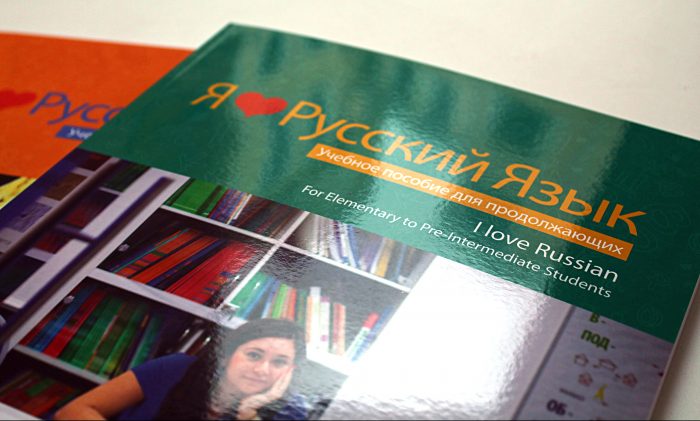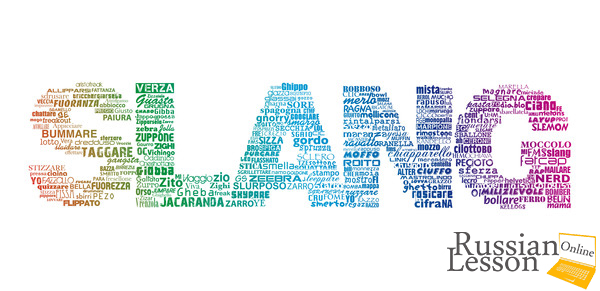
When learning Russian (or any other language for that matter) there are tons of tips and methods out there of how to do it successfully. Watch films and listen to music in Russian, read the newspapers in Russian, use memory cards, download learning apps and much more. All of these tips are of course good and will help you develop but there is one thing that beats all the other, it is the best (and hardest) way to learn.
It is all very simple. SPEAK! ГОВОРИТЕ!
This is for me personally the hardest part and I am still struggling to overcome my fear of speaking Russian, mostly because I am a control freak and want to use all the grammar and words correctly or I do not speak at all. But as you might understand, it is impossible for me to say everything perfectly, and in order to learn, I must dare to open my mouth and talk. And so must you! To help you with this I will give you a list of arguments of why speaking is the most important part of learning Russian and why it does not have to be so scary.
1.
The Russians are well aware of the difficulty of their language, so when telling them that you are learning Russian they usually give away a sound of surprise. But due to this they are often very patience and encouraging when talking to them. They are glad that foreigners are learning their language and usually ask a lot of questions why. The key is to always start a conversation in Russian and not in English. If they notice that you are making a try for it, they will (in my experience) always be helpful and try to understand what you want to say.
2.
By talking to Russian you are going to learn a lot of expressions and slang that you would never learn in school. I have picked up at lot of words and phrases talking, and listening, to Russians. This is important, since the language that we are using in our everyday life usually is not so formal. You will in other words sound more like a native.
3.
I have been told more than once by my teachers that I must start to think like a Russian in order to speak Russian. In the beginning, the majority of us just translate a sentence in our heads from our mother tongue into Russian. This tends to cause a lot of incorrect sentences but even when you get all the grammar right the Russians will still tilt their heads. It is because they have a different logic in their language and how they see situations. So many times Russians have told me that “I understand what you mean and grammatically it is correct BUT, we do not say it like that”. So when talking to Russians, and not just fellow students being in the same position as you are, you will learn the mindset behind the language much better and faster.
4.
Practicing Russian during the entire day you will develop a broad vocabulary, since you will find yourself in so many different situations: Going by the metro, shopping in stores, ordering food at restaurants, asking for directions, buying food, ask about exhibitions in museum etc. Usually all of these topics are processed during lessons and therefore it is a great opportunity being able to practice them in real life and to not just sit at home and write sentences with them.
Before finishing, I will give you one final piece of advice which kind of sums up all the others. Do not be afraid to say it wrong. This is so important and also my biggest challenge. You can impossibly know how to say everything right, if you could you would not be studying the language. As we say in Sweden: “We are all children in the beginning”, meaning that we do not know everything and that we must try in order to learn. But usually it is the first step that is the hardest and once you have survived that first conversation entirely in Russian, it will just go easier and easier for each time and you will feel the progress immediately. That, in combine with the sense of pride you will feel for having tried, will take you Russian skills to another level.
Do you remember the first time you had a full conversation in Russian and how you felt afterwards? Let us know below!

Students will be happy to learn that the Russian Government has today announced plans to make Russian language easier in an effort to simplify greater international engagement. …

In a previous post, we revealed that Russians don't really say “na zdarovje” when they toast. While the phrase has been popularised in English language media – and a lot of Russians will nod politely and clink glasses with you if you use it – it’s not something a native speaker would ever…

Improve your Russian while working as an expat? Mission possible! …

What could be a better way for Russian immersion than reading, especially when you read the books that you find interesting and that can give you a better idea of the culture of Russia? Co-founder of Liden & Denz, Walter Denz shares his experience on how reading Russian literature can improve your…

Learning a language is hard. Keeping it when you don't have classes is even harder. So this article is not about how to learn Russian, but how to maintain your Russian. …

Learning the Russian language can be a long, hard slog. Days, weeks, months spent poring over textbooks, attempting to understand the cases, crying over aspects, endeavouring to pronounce ы and щ. …

Many language learners desire to communicate well with native speakers of the language or those who speak it. I have always dreamt of talking more fluently and texting through social media with my Russian friends better. It is no exaggeration to say that good communication skill gives you an…

If you are already able to speak Russian, then congratulations! You are on a good way. But even if you are, let’s say, on level B2, you have probably been in situations with Russians, especially younger people, where you did not understand everything they said — either because they were speaking…